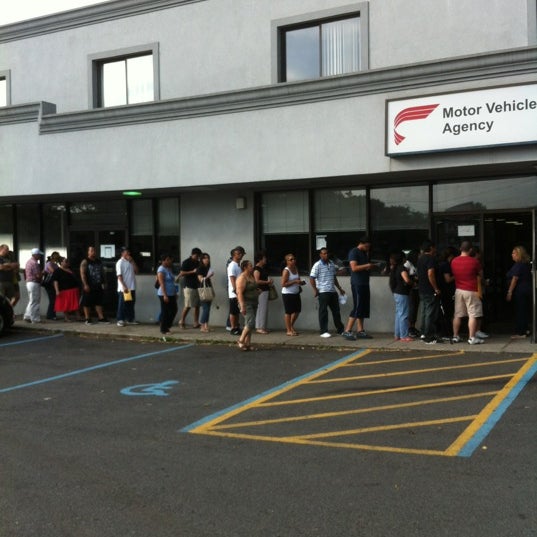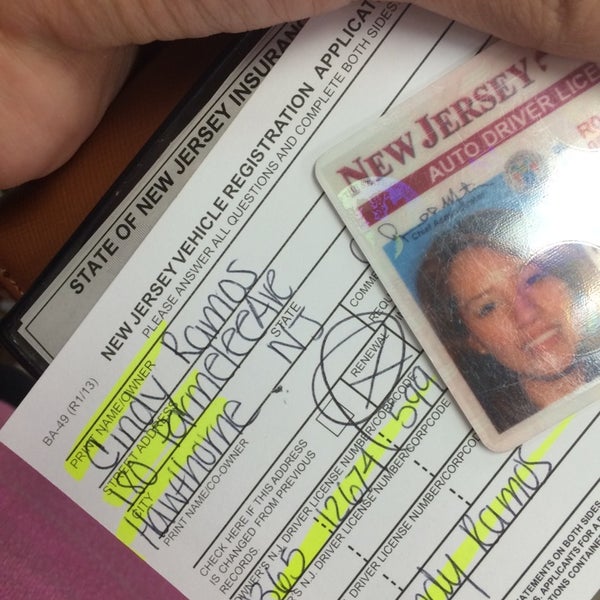Comprehensive Guide To Motor Vehicle Laws In New Jersey
Motor vehicle laws in New Jersey are among the most stringent in the United States. These regulations are designed to ensure the safety of drivers, passengers, and pedestrians alike. Whether you're a resident or visiting the Garden State, understanding these laws is crucial to avoid fines and legal complications.
New Jersey's motor vehicle laws cover a wide range of topics, including registration, insurance, licensing, and traffic violations. This article aims to provide an in-depth understanding of these regulations, ensuring that you are well-prepared and compliant with the law.
By staying informed, you can navigate New Jersey's roads with confidence, knowing that you're adhering to the rules set forth by the state. Let's delve into the specifics of motor vehicle laws in New Jersey to ensure a safe and legal driving experience.
- Illinois Department Of Regulation License Lookup A Comprehensive Guide
- 2024 Reds Schedule Printable Your Ultimate Guide To A Thrilling Baseball Season
Table of Contents
- Motor Vehicle Registration in New Jersey
- Mandatory Insurance Requirements
- Driver Licensing Process
- Key Traffic Laws in New Jersey
- Penalties for Violations
- Safety Regulations and Equipment
- Commercial Vehicle Regulations
- Environmental and Emissions Standards
- Technology and Driving Laws
- Additional Resources for Drivers
Motor Vehicle Registration in New Jersey
Importance of Registration
Registering your vehicle in New Jersey is a legal requirement. Failure to comply can result in fines and the inability to legally operate your vehicle on public roads. The process involves submitting necessary documentation and paying applicable fees.
Key documents required for registration include the title, proof of insurance, and an emissions inspection certificate if applicable. The registration fee varies based on the vehicle's weight and type.
Steps for Vehicle Registration
To register your vehicle, follow these steps:
- Whats The Capital Of Minnesota A Comprehensive Guide To The Heart Of The North Star State
- Carl Grimes The Walking Deads Youthful Hero And His Impact On The Series
- Visit the New Jersey Motor Vehicle Commission (MVC) website for forms and information.
- Gather all required documents, including proof of ownership and insurance.
- Submit your application and pay the registration fee at a local MVC office.
Mandatory Insurance Requirements
Understanding Insurance Needs
New Jersey mandates that all drivers carry a minimum level of liability insurance. This coverage includes bodily injury liability, property damage liability, and personal injury protection (PIP). The minimum coverage limits are as follows:
- Bodily Injury Liability: $15,000 per person / $30,000 per accident
- Property Damage Liability: $5,000
- Personal Injury Protection: $15,000
Consequences of Non-Compliance
Driving without insurance in New Jersey can lead to severe penalties, including fines, license suspension, and vehicle impoundment. It's essential to maintain continuous coverage to avoid these consequences.
Driver Licensing Process
Types of Licenses
New Jersey offers various types of driver's licenses, each tailored to specific needs and driving categories. These include:
- Class D: Standard driver's license for passenger vehicles.
- Class M: Motorcycle license.
- Class A, B, and C: Commercial driver's licenses for operating large vehicles.
Steps to Obtain a License
Obtaining a driver's license in New Jersey involves passing a knowledge test, a road test, and a vision screening. Applicants must also provide proof of identity, residency, and Social Security number.
Key Traffic Laws in New Jersey
Speed Limits
New Jersey enforces strict speed limits to ensure road safety. The general speed limits are:
- Residential Areas: 25 mph
- Highways: 55 mph
- Interstate Highways: 65 mph
Seat Belt Laws
All drivers and passengers in New Jersey are required to wear seat belts. Violations can result in fines, emphasizing the importance of adhering to this safety regulation.
Penalties for Violations
Traffic Violation Penalties
Penalties for traffic violations in New Jersey can include fines, points on your license, and even license suspension for repeat offenders. For example:
- Speeding: Fines ranging from $50 to $200, depending on the excess speed.
- Reckless Driving: Up to $500 fine and 6 months in jail.
License Points System
New Jersey uses a point system to track driver violations. Accumulating 12 points within a 3-year period can lead to license suspension. Drivers can reduce points by taking defensive driving courses.
Safety Regulations and Equipment
Child Safety Seats
New Jersey law requires children under the age of 8 to be secured in an appropriate child safety seat or booster seat. The type of seat depends on the child's age, weight, and height.
Helmets for Motorcyclists
All motorcyclists in New Jersey are required to wear helmets that meet DOT safety standards. This regulation is aimed at reducing head injuries in the event of an accident.
Commercial Vehicle Regulations
Commercial Driver's License (CDL)
Operators of commercial vehicles in New Jersey must possess a Commercial Driver's License (CDL). This license requires additional testing and certification, ensuring that drivers are qualified to handle large vehicles safely.
Hours of Service Rules
Commercial drivers must adhere to federal Hours of Service (HOS) regulations, limiting the number of hours they can drive within a specific timeframe. These rules aim to prevent fatigue-related accidents.
Environmental and Emissions Standards
Emissions Testing
New Jersey requires annual emissions testing for most vehicles. This test ensures that vehicles meet environmental standards and do not contribute excessively to air pollution.
Electric and Hybrid Vehicles
The state encourages the use of electric and hybrid vehicles by offering incentives such as tax credits and access to carpool lanes. These initiatives support sustainable transportation practices.
Technology and Driving Laws
Texting and Driving
New Jersey bans texting and driving, classifying it as a primary offense. Drivers caught texting while driving can face fines and points on their license.
Hands-Free Devices
The use of hands-free devices for phone calls while driving is permitted in New Jersey. However, drivers under the age of 21 are prohibited from using any mobile devices while driving, even with hands-free technology.
Additional Resources for Drivers
New Jersey Motor Vehicle Commission (MVC)
The New Jersey MVC website provides comprehensive information on all aspects of motor vehicle laws and regulations. Drivers can access forms, updates, and services online for convenience.
Legal Assistance
In case of legal issues related to motor vehicle violations, consulting with a qualified attorney specializing in traffic law can be beneficial. They can provide guidance and representation to help resolve matters effectively.
Conclusion
Motor vehicle laws in New Jersey are designed to promote safety and compliance among drivers. By understanding and adhering to these regulations, you can ensure a safe and lawful driving experience in the state. Remember to stay informed about updates and changes to the laws to remain compliant.
We encourage you to share this article with fellow drivers and explore other resources available on our website for more information. Your feedback and comments are always welcome, helping us improve and expand our content for the benefit of all readers.
References:
- New Jersey Motor Vehicle Commission (MVC)
- National Highway Traffic Safety Administration (NHTSA)
- Federal Motor Carrier Safety Administration (FMCSA)
- Noah Kahan Political Party An Indepth Exploration
- Plymouth And Brockton Bus Schedule A Comprehensive Guide For Your Journey

New Jersey Motor Vehicle Locations

New Jersey Motor Vehicle Registration Locations

New Jersey Motor Vehicle Online License Renewal